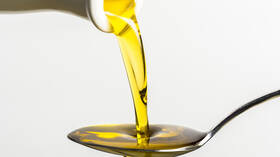Understanding the biology of cancer has assisted scientists in developing preventive measures, such as the use of specific nutrients, the components of which can inhibit the formation of cancer due to their antioxidant activity.
According to one research, a certain kind of oil may lower the incidence of all types of cancer by 31% due to its unique antioxidant qualities.
According to a 2022 meta-analysis published in the journal PLoS One, there is emerging evidence that olive oil components protect against the development of numerous forms of cancer.
The study discovered significant differences in cancer risk between those who ingested olive oil and those who did not.
In particular, the greatest use of olive oil was linked to a 31% decreased chance of having any sort of cancer.
They went on, The beneficial impact of olive oil is attributable mostly to its remarkable composition, which is high in monounsaturated fatty acids, squalene, and phenolic compounds. Its potent antioxidant activities scavenge cellular oxidative stress and DNA damage while also influencing crucial signalling pathways involved with carcinogenesis.
A meta-analysis of 45 studies found that the best protection was for breast, gastrointestinal, and urinary tract malignancies.
The researchers ended the meta-analysis by saying, “The findings of this meta-analysis provide excellent evidence of olive oil’s preventive benefits against the development of cancer.”
They also stated that greater study into the effect of olive oil in cancer prevention would be beneficial.
Researchers have previously investigated the positive effects of olive oil in animal tests in which mice were fed an olive oil-rich diet and compared to those fed a corn oil-rich diet.
The results revealed that the olive oil diet provided the majority of the advantages, since tumours looked to be less aggressive in this group.
In 2015, researchers discovered that oleocanthal, a major component in extra virgin olive oil, destroys cancer cells without hurting healthy cells.
Hunter College biologists in New York City discovered that the chemicals burst a portion of a cancer cell and release enzymes that cause the cells to die.
These alluring health advantages have made olive oil a popular cooking oil, but studies suggest that to receive the full benefits of olives, it is preferable to consume them raw.
Many Mediterranean inhabitants, in fact, consume a tiny amount of olive oil for this purpose, but this practise may have drawbacks.
Despite its numerous health advantages, olive oil has 120 calories per tablespoon, so eating more than you burn might result in weight gain.
Furthermore, study published in the Journal of Free Radical Biology and Medicine reveals that eating olive oil with other meals, such as tomatoes, delivers additional advantages.
This has the potential to greatly boost the absorption of disease-fighting antioxidants found in many plant meals.
One of the most significant mistakes to avoid is repeatedly heating olive oil at high degrees, because repetitive heating of cooking oils (RCO) can develop a variety of chemicals that have been linked to cancer.
A kind of oil has been linked to a decreased risk of cancer in a study.

